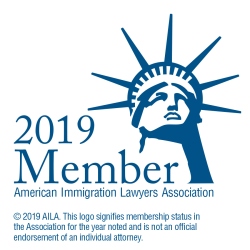On December 27, 2016, the United States Citizenship and Immigration Services’ Administrative Appeals Office (AAO) finally revisited and vacated Matter of New York State Dep’t of Transp., 22 I&N Dec. 215, a decision that has perplexed immigration practitioners and their clients since it was written in 1998. As the AAO acknowledges in the recently written Matter of Dhanasar, 26 I&N Dec. 884 (AAO 2016), the reasoning used in NYSDOT was unclear in many respects.
A reading of Dhanasar makes it impossible to understand why the USCIS adjudicating officer denied the application at the outset. The petitioner has two complementary masters degrees, as well as a PhD, which he uses to design and develop propulsion systems for potential use in military and civilian technologies such as nano-satellites, rocket-propelled ballistic missiles, and single-stage-to-orbit vehicles. The work is funded by NASA and a unit within the Department of Defense. We can only surmise that the adjudicating officer’s reliance on the confusing standards articulated in NYSDOT led to the AAO’s conclusion that relying on this outdated decision was no longer appropriate.
Like any appellate decision, Dhanasar may generate its own confusion, but this new precedent must nevertheless be used as the new guideline for presenting National Interest Waiver (NIW) petitions to USCIS.
National Interest Waiver Petitions
National Interest Waiver petitions are employment-based petitions filed under Section 203(b)(2)(B)(i) of the Immigration and Nationality Act. Section 203(b)(2)(A) provides a route to permanent residence for “qualified immigrants who are members of the professions holding advanced degrees or their equivalent or who because of their exceptional ability in the sciences, arts, or business, will substantially benefit prospectively the national economy, cultural or educational interests, or welfare of the United States.” In general, such immigrants must demonstrate that they have a permanent full-time job offer from a qualified employer, and that there are no available minimally qualified US workers (the “labor certification” or “PERM” process). However, under 203(b)(2)(B)(i) immigrants who can demonstrate that their work is in the national interest can waive the cumbersome process required to demonstrate an appropriate job offer and the unavailibility of US workers.
In many instances, the NIW is the only route to permanent residence available to particular immigrants. For example, post doctoral researchers often have a series of term appointments at numerous universities, so they cannot demonstrate a permanent offer of employment, even when their work is of obvious benefit to the United States. At Nancy M. Vizer, P.C., we have worked with biochemists seeking cures for cancer, diabetes and other life threatening diseases, as well as mechanical engineers who design robots useful to military units searching for land mines or other dangers, and an earth scientist seeking methods of predicting and perhaps preventing earthquakes, among many other successful clients.
Dhanasar‘s new analytical framework
Under Dhanasar, the AAO articulates three prongs that petitioners must demonstrate by a preponderance of the evidence: (1) that the foreign national’s proposed endeavor has both substantial merit and national importance; (2) that the foreign national is well positioned to advance the proposed endeavor; and (3) that, on balance, it would be beneficial to the United States to waive the requirements of a job offer and thus of a labor certification. I will discuss each prong separately below.
1. The proposed endeavor has both substantial merit and national importance
This prong has two important differences from NYSDOT, which required “substantial intrinsic merit” and “nationwide benefits.” The AAO in Dhanasar notes that the word “intrinsic” adds little to the term “substantial merit,” but instead generates an additional unquanitified subjective standard. Our firm hopes that the change from “nationwide benefits” to “national importance” will broaden the scope of qualified applicants. In NYSDOT, although the petitioner’s work was local to New York State, the AAO nevertheless found that his work had “nationwide benefits” because New York is an important hub in the national transportation system. The new standard acknowledges that work benefitting only a particular state or region may nevertheless have national importance, and qualify under this prong.
About ten years ago, USCIS denied a case where the Petitioner had developed an anti-smoking program for teenagers that was used in a particular region of the country. Although the program was being replicated in other states, USCIS nevertheless found that the work did not have “nationwide benefits,” and thus the Petitioner did not qualify for a National Interest Waiver. Perhaps under this newly defined prong, the same Petitioner would be able to show that her work is of “national importance,” and satisfy this prong.
2. The foreign national is well positioned to advance the proposed endeavor
The AAO indicates that one of the reasons for this prong is its potential to assist self-employed entrepreneurs, who by definition will not have qualifying “job offers,” to be eligible for a National Interest Waiver. Our firm is concerned that the prong will have the opposite effect. In our experience, many employers are hesitant to hire immigrants, and investors are hesitant to fund their entrepreneurial efforts, simply because of the tenuous nature of the immigrants’ employment eligibility. An entrepreneur will not be “well positioned to advance the endeavor” without funding. Yet the risk of investing in a business, when the “brains” of the business may have a petition denied and be required to leave the country, may be daunting. By the same token, a pharmaceutical company may be anxious to hire the cancer researcher currently working at a university for a fixed term. Yet a different set of immigration regulations often make it impossible for the pharmaceutical company to hire the immigrant until her permanent residence has been approved.
Although the new standard does not require the Petitioner to show success in their proposed endeavor, they must show progress towards the proposed endeavor, as well as, in some instances, “the interest of potential customers, users, investors, or other relevant entities or individuals.” One wonders how entrepreneurs would be able to show customer interest in a yet-to-be-developed product. Thus, this regulation seems to have what may prove to be an insurmountable obstacle for many potential entrepreneurial Petitioners.
On the other hand, researchers whose work has been well funded, either through the researcher’s own institution or by some outside agency, and whose supervisors indicate an intent to continue employing the researcher, would presumably be “well positioned to advance the proposed endeavor.”
3. On balance, it would be beneficial to the United States to waive the requirements of a job offer and thus of a labor certification
This is a kinder, gentler standard than the harsh requirements of NYSDOT, which almost required Petitioners to show the hypothetical labor pool that would be available to fill the Petitioner’s position, and show that the Petitioner is more qualified than this hypothetical pool. The AAO seems to indicate that a mix of specialized skills, which are almost impossible to list under the rigorous requirements of the burdensome labor certification process, will be an asset to Petitioners, as will such criteria as the number and quality of publications.
Conclusion
With the publication of Dhanasar, immigration attorneys and their clients are entering a new era of National Interest Waiver adjudication, which will likely benefit some classes of immigrants while disadvantaging others. Petitioners would be well advised to refer to the new analytical framework before submitting applications under these regulations.
Make sure to check out our other recent article: 5 Signs You Have the Wrong Immigration Lawyer




